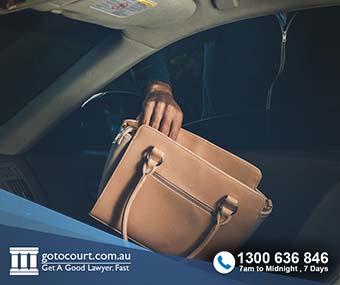Theft in Australia
Theft in Australia
Each state and territory of Australia has different offences relating to theft and different maximum penalties that apply. Theft is also known as larceny and stealing. These offences are generally finalised in the Magistrates Courts but may be committed to a higher court in some circumstances. This page outlines the laws around these offences in each jurisdiction.
Stealing in Queensland
In Queensland, section 391 of the Crimes Act 1899 contains the offence of stealing. This offence occurs when a person fraudulently takes a thing or converts a thing to their own use. Stealing attracts a penalty of up to five years imprisonment. However higher penalties apply if the offence is committed in special circumstances.
If a person steals from the person of another, steals from the person’s employer, or in a range of other circumstances set out in sections they are liable to up to 10 years imprisonment. If a person steals a will, they are liable to imprisonment for up to 14 years.
Larceny in New South Wales
In New South Wales, the offence of larceny carries a penalty of imprisonment for up to five years under section 117 of the Crimes Act 1900.
The act also contains offences relating specifically to larceny by an employee from their employer, which carry a penalty of up to 10 years.
There are also a number of less serious offences relating to theft in the act, including stealing dogs and stealing shrubs.
Theft in Victoria
In Victoria, the offence of theft is set out in section 74 of the Crimes Act 1958. It carries a penalty of up to 10 years imprisonment. The act also provides for a specific offence of theft of a firearm, which carries a penalty of up to 15 years imprisonment.
Related offences include robbery, armed robbery and burglary.
Stealing in Tasmania
In Tasmania, all indictable offences carry a maximum penalty of 21 years imprisonment unless otherwise stated in the legislation. The Criminal Code Act 1924 contains offences of stealing, stealing electricity and stealing firearms, all of which carry this general penalty. It also contains related crimes such as killing animals with intent to steal and demanding with menaces with intent to steal.
Theft in South Australia
In South Australia, theft is contained in section 134 of the Criminal Law Consolidation Act 1935. It is defined as dealing with property dishonestly and without the owner’s consent and intending to permanently deprive the owner of the property or to make a serious encroachment on their property rights.
The penalty for theft is 10 years imprisonment (or 15 years for an aggravated offence).
Stealing in Western Australia
In Western Australia, the penalty for stealing is imprisonment for up to seven years. Longer penalties apply if particular things are stolen – for example, 10 years for a will or an aircraft.
Stealing in the Northern Territory
In the Northern Territory, section 210 of the Criminal Code Act 1983 makes stealing an offence punishable by up to seven years imprisonment, or 14 years if the thing stolen is a will or has a value of more than $100,000.
Defences to theft in Australia
There are several legal defences that can be relied on when charged with theft.
Honest claim of right
A person cannot be found guilty of theft if they had an honest claim to the item allegedly stolen.
Honest mistake
A person has a full defence to a theft charge if the alleged offence was based on an honest mistake – for example if they honestly believed that the owner had consented to them taking the item.
No intention to permanently deprive
A person is not guilty of theft if they were taking an item temporarily with the intention of returning it.
Emergency
A person has a defence to theft if they did the act because of a sudden or extraordinary emergency.
If you require legal advice or representation in any legal matter, please contact Go To Court Lawyers.

Affordable Lawyers
Our Go To Court Lawyers will assist you in all areas of law. We specialise in providing legal advice urgently – at the time when you need it most. If you need a lawyer right now, today, we can help you – no matter where you are in Australia.How It Works




1. You speak directly to a lawyer
When you call the Go To Court Legal Hotline, you will be connected directly to a lawyer, every time.

2. Get your legal situation assessed
We determine the best way forward in your legal matter, free of charge. If you want to go ahead and book a face-to-face appointment, we will connect you with a specialist in your local area.

3. We arrange everything as needed
If you want to go ahead and book a fact-to-face appointment, we will connect you with a specialist in your local area no matter where you are and even at very short notice.



















